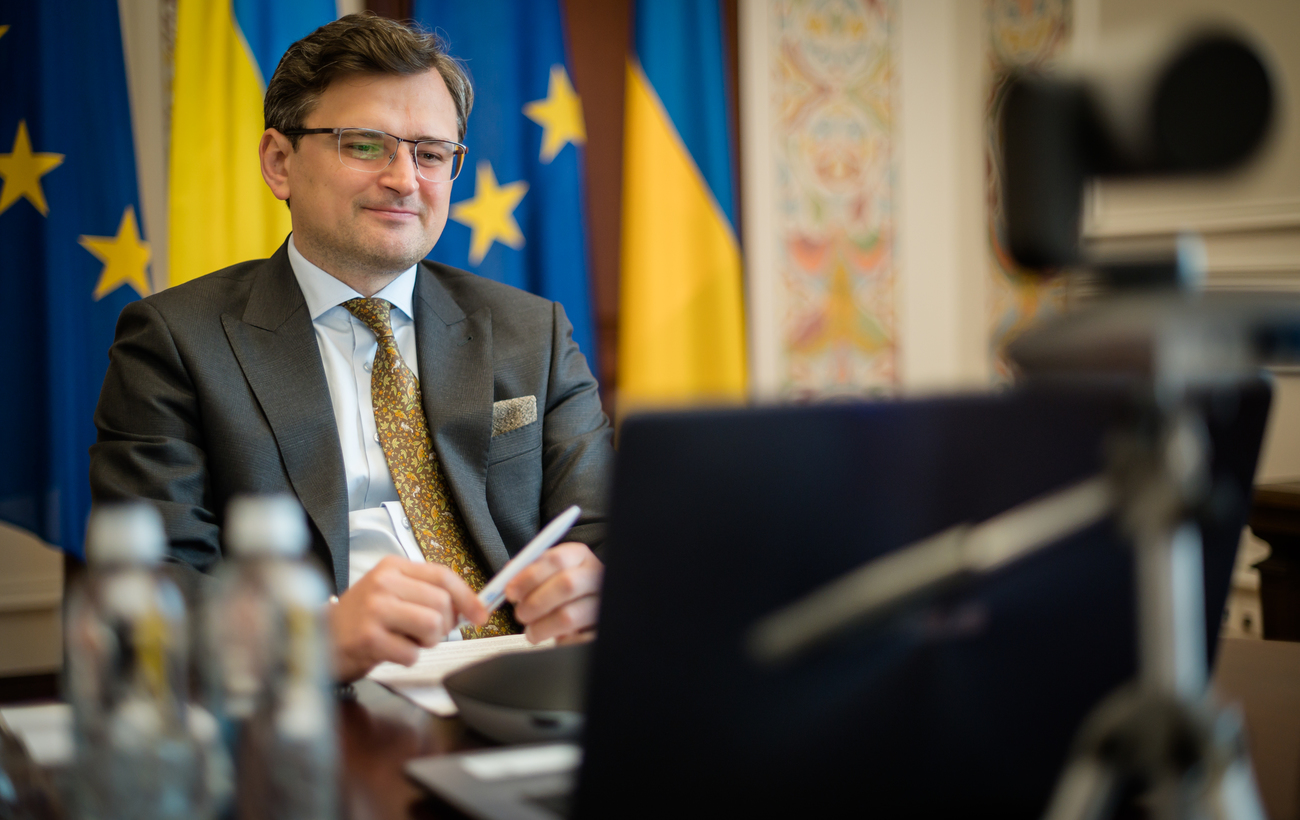Ukrainian Foreign Minister Dmytro Kuleba discussed Russia’s military exercises near his border on Friday, separately with British and German counterparts.
A statement from the Ukrainian Foreign Ministry said that Kuleba had informed British President Dominique Raab about Russia’s activities, “not only a military escalation on the line of contact with the temporarily occupied territories of Donetsk and Luhansk regions and in Crimea, but also a significant increase in misinformation and propaganda.”
Noting that Russian “propaganda” continues to create the misconception that Ukraine is planning military action, “this is complete nonsense,” he said. “On the contrary, Ukraine has always sought and continues to seek peace.”
Raab said that London was closely monitoring Russia’s activities and expressed Britain’s solidarity with Ukraine.
“Any attempt by Russia to create a large-scale military escalation will have dire consequences for it,” he said, according to the ministry.
Kuleba later said on Twitter that he had spoken to German Heiko Maas on the same subject.
“I thanked Germany for its support and assured my colleague that Ukraine is fully committed to the political and diplomatic means of achieving the deoccupation of its territories,” Kuleba said.
Maas said they were closely monitoring the situation on the Ukrainian-Russian border. “We agree with Ukraine that de-escalation is now extremely important so as not to risk a ceasefire,” he said.
Tensions on the Ukraine-Russia border
On March 30, Ruslan Khomchak, commander-in-chief of Ukraine’s Armed Forces, said that Russia had deployed its troops near the Ukrainian border to conduct “exercises.”
Kremlin spokesman Dmitry Peskov said that Russia had moved its armed forces to its territory “at its own discretion” and “does not threaten anyone.”
Russian forces entered the Crimean peninsula in February 2014, when Russian President Vladimir Putin officially divided the region into two separate federal entities of the Russian Federation next month.
Turkey and the United States, as well as the UN General Assembly, consider the annexation illegal, as has the EU, which has imposed sanctions on Russia for the seizure.

